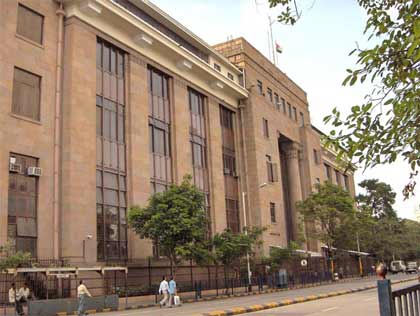Urjit Patel resigns as RBI governor

Among the reports of the ongoing tiff with the government, RBI Governor Urjit Patel resigned from his post on Monday taking an unexpected step. Patel has, however, cited ‘personal reasons’ for his resignation but it is being associated it with the differences between the government and the central bank. PM Narendra Modi and Finance Minister Arun Jaitley have given Patel a wish for his better future. Also, the search for the new governor of the RBI has started immediately.
In his very brief written letter, Patel has said, “For personal reasons I am leaving my post immediately. It is a matter of great honor to me that for so many years, I have served my various positions in the RBI. “Patel has given his services in the RBI for nearly six years. Before that he was deputy governor, but when in September, 2016, former Governor Raghuram Rajan’s tenure was completed, he was appointed as Governor.
PM Narendra Modi, praising Patel’s integrity, has said that he is leaving a great heritage. The PM has called him a highly qualified economist and said that under his leadership, the RBI has made significant contribution in bringing financial stability. PM Modi has also said that Patel’s absence will be visible. While Finance Minister Arun Jaitley has said that the services provided by Patel as RBI governor and the deputy governor is commendable.
Dissatisfaction was going on for four months
The dispute between the RBI and the current government was being sorted out for the last four months. The root cause of this controversy was whether the central bank could completely ignore the wishes of the government despite its autonomy? There were different opinions about this. From the first Prime Minister Jawaharlal Nehru to the previous Prime Minister Manmohan Singh, the attitude of the present government was almost the same.
It was such that the letter was written to the RBI on behalf of the Finance Ministry that it has the right to take steps under Section 7 of the RBI Act. Under this section, the central government can put pressure on the RBI to persuade its views. After this, on the 5th October, 2018 meeting of the RBI Board, some proposals were brought from the representatives of the government for which Patel and the RBI Deputy Governor were not very agreeable.
It is believed that the speech given by deputy governor Viral Acharya on October 26, 2018, was an attempt to make the matter public on behalf of Patel and his team. In this, Acharya had indirectly indicated that the central government is interfering in the working area of the RBI. After this, the statement made by the government on October 31 was attributed to the rising controversy by the RBI and said that on issues of public interest, he will continue to give suggestions to the RBI from time to time.
After that on 19th November, 2018, the meeting of the Board of Directors of the RBI was held by various government representatives. On the demand made by the government, the RBI Board decided to constitute a separate committee. Prior to this, a letter was written to the RBI governor on behalf of the government, in which it was said that the Section 7 of the RBI Act was implemented. According to this section, the central government can put pressure on RBI to make its point of view.
On Monday evening, Reserve Bank of India governor Urjit Patel resigned from his post suddenly, he said the reasons for the resignation was a personal reason. Urjit Patel assumed charge of RBI governor on September 4, 2016. Patel’s resignation is bound to show an impact on the stock market. Experts say that Urjit Patel’s resignation is not less than a shock to the market. The sensex already tanked over 700 points on December 10 after exit poll results is expected to remain volatile this week.









